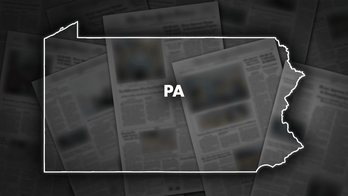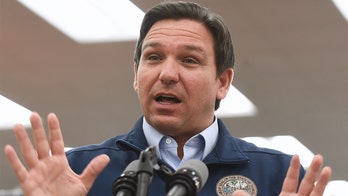The Obama administration has allowed 222 employers, insurers and unions to opt out of a key mandate in the new health care law – a number that has grown exponentially in the past two months.
Employers like McDonald's, Waffle House and Universal Orlando are among the companies that have received a one-year waiver, allowing them to maintain minimal coverage below the new law's standards.
The list has grown significantly since October, when 30 companies had waivers, and has doubled since early November. Taken together, the companies cover more than 1.5 million people, including 34 unions with more than 140,000 members.
Other companies and unions that received waivers include Ruby Tuesday, AMB Bowling Worldwide, and the local chapters of the International Brotherhood of Trade Unions Health and Welfare Fund and the Teamsters.
Although the waivers are to last one year, groups can apply to extend them until 2014.
Many unions had fought hard for health reform and were dismissive about fears that companies would simply dump their coverage if health reform passed. But unions are now demanding to be exempt from the new law.
Many of the nation’s biggest unions also had backed President Obama's campaign. Early in the health-reform debate, unions won exemptions to the tax on so-called Cadillac health-care plans -- those with the most generous benefits.
Workers affected by these exemptions are now left to wonder whether their low-cost health-insurance plans will continue to provide the coverage they need.
Companies who do not get waivers are left wondering whether it's fair that they must follow the health-reform rules and regulations that every other company in the United States must follow, while their competitors who got waivers do not.
Taxpayers are left wondering if it will be just as easy for them to get waivers on the individual mandate, which says everyone must buy health coverage or pay an annual fine, anywhere from $750 per person to not more than $2,250 per household.
The federal government began granting waivers from a part of the health-reform law in September when it gave the fast-food chain McDonald’s an exemption on its mini-med plans, paid for by the company.
Mini-med plans cover part-time and low-wage workers. McDonald’s threatened to drop its mini-med plans, covering 30,000 workers, if it did not receive an exemption.
The problem centers around a section of the new health-reform law that says a percentage of insurance premiums must now be spent on actual benefits. The new law says beginning next year, at least 80% to 85% of premium revenue must be spent on medical care coverage.
Democrats had fought for this new provision to stop insurers from purportedly doing things like using premium revenue to pad their wallets with executive salaries, or wasting those revenues on marketing and other administrative costs that elected officials argued don’t do much to directly help patients.
But the government gets to define what are lawful expenditures on health-care coverage, and potentially what are lawful salaries and administrative costs -- administrative costs which could pay for important cost-saving things like disease management that actually drive overall expenses lower.
McDonald's and other companies had argued that this new requirement in the law, dubbed the “medical loss ratio," was too onerous for their mini-med plans.
They said that such plans always typically have high administrative costs because their workforce tends to turn over much more frequently.
And because these plans tend not to cost too much, those administrative costs often look outsized in comparison and would put them above the threshold for what sums must now be spent on medical care under the new law.
Fox Business' Elizabeth MacDonald contributed to this report.




